S3.10 Back to Humanity

The Wakeful Wanderer’s Guide Series
by Jim Infantino
In the parlor of the Lester Sunshine Inn, up the Hudson from the flooded remains of lower Manhattan, a man named Marto plans a unicycle ride through scenic New New England. Marto is a post-apocalyptic travel writer with a head full of implants. He live-posts his experiences to his fans, adding his own cheerleading style of historical and cultural context to the mix. His interconnected followers rarely go anywhere, preferring to view the world remotely, making Marto a curiosity.
https://wakefulwanderer.com - full information

Utopia
by Thomas More
In his most famous and controversial book, Utopia, Thomas More imagines a perfect island nation where thousands live in peace and harmony, men and women are both educated, and all property is communal. Through dialogue and correspondence between the protagonist Raphael Hythloday and his friends and contemporaries, More explores the theories behind war, political disagreements, social quarrels, and wealth distribution and imagines the day-to-day lives of those citizens enjoying freedom from fear, oppression, violence, and suffering. Originally written in Latin, this vision of an ideal world is also a scathing satire of Europe in the sixteenth century and has been hugely influential since publication, shaping utopian fiction even today.
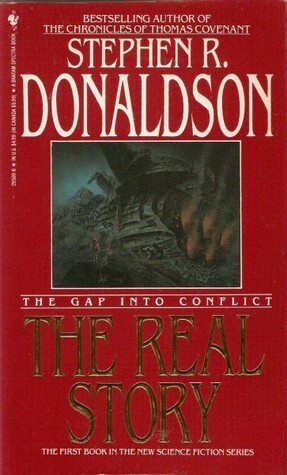
The Gap Into Conflict: The Real Story (The Gap Cycle #1)
by Stephen R. Donaldson
Angus Thermopyle was an ore pirate and a murderer; even the most disreputable asteroid pilots of Delta Sector stayed locked out of his way. Those who didn't ended up in the lockup--or dead. But when Thermopyle arrived at Mallory's Bar & Sleep with a gorgeous woman by his side the regulars had to take notice. Her name was Morn Hyland, and she had been a police officer--until she met up with Thermopyle.
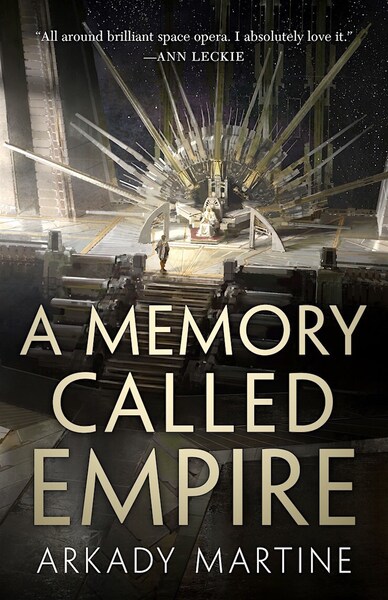
A Memory Called Empire
by Arkady Martine
Ambassador Mahit Dzmare arrives in the center of the multi-system Teixcalaanli Empire only to discover that her predecessor, the previous ambassador from their small but fiercely independent mining Station, has died. But no one will admit that his death wasn't an accident—or that Mahit might be next to die, during a time of political instability in the highest echelons of the imperial court.
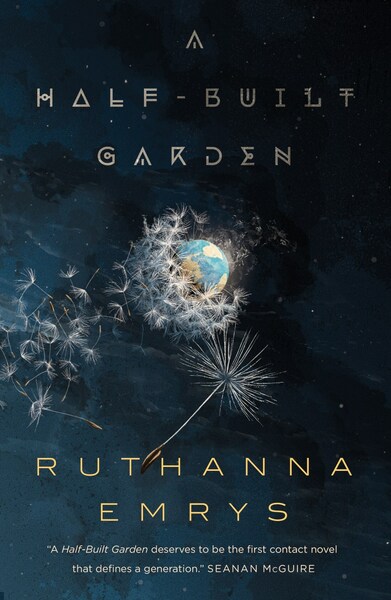
A Half-Built Garden
by Ruthanna Emrys
On a warm March night in 2083, Judy Wallach-Stevens wakes to a warning of unknown pollutants in the Chesapeake Bay. She heads out to check what she expects to be a false alarm--and stumbles upon the first alien visitors to Earth. These aliens have crossed the galaxy to save humanity, convinced that the people of Earth must leave their ecologically-ravaged planet behind and join them among the stars. And if humanity doesn't agree, they may need to be saved by force.
Not mentioned in the pod, recommended as relevant by Sarah Elkins.

Walkaway
by Cory Doctorow
Hubert Vernon Rudolph Clayton Irving Wilson Alva Anton Jeff Harley Timothy Curtis Cleveland Cecil Ollie Edmund Eli Wiley Marvin Ellis Espinoza—known to his friends as Hubert, Etc—was too old to be at that Communist party.
But after watching the breakdown of modern society, he really has no where left to be—except amongst the dregs of disaffected youth who party all night and heap scorn on the sheep they see on the morning commute. After falling in with Natalie, an ultra-rich heiress trying to escape the clutches of her repressive father, the two decide to give up fully on formal society—and walk away.
Not mentioned in the pod, recommended as relevant by Sarah Elkins.

Donald E. Westlake
Donald E. Westlake (1933-2008) was one of the most prolific and talented authors of American crime fiction. He began his career in the late 1950's, churning out novels for pulp houses—often writing as many as four novels a year under various pseudonyms such as Richard Stark—but soon began publishing under his own name. His most well-known characters were John Dortmunder, an unlucky thief, and Parker, a ruthless criminal. His writing earned him three Edgar Awards: the 1968 Best Novel award for God Save the Mark; the 1990 Best Short Story award for "Too Many Crooks"; and the 1991 Best Motion Picture Screenplay award for The Grifters. In addition, Westlake also earned a Grand Master Award from the Mystery Writers of America in 1993.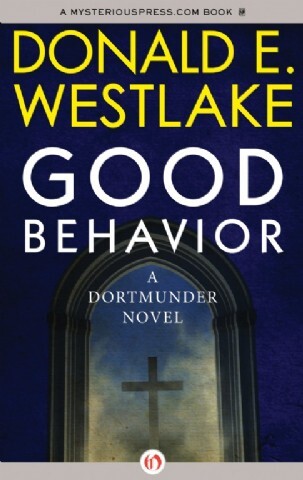
Good Behavior
by Donald E. Westlake
1985 criminal caper novel – plot overlap with Walkaway and bonus, the rich patriarch has a little speech about American feudalism. Book 6 of his Dortmunder series, but extremely easy entry.
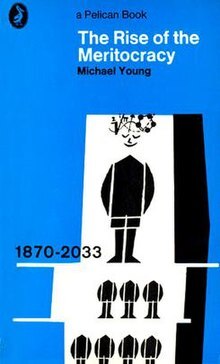
The Rise of Meritocracy
by Michael Dunlop Young
The Rise of the Meritocracy is a book by British sociologist and politician Michael Dunlop Young which was first published in 1958. It describes a dystopian society in a future United Kingdom in which intelligence and merit have become the central tenet of society, replacing previous divisions of social class and creating a society stratified between a merited power-holding elite and a disenfranchised underclass of the less merited. The essay satirised the Tripartite System of education that was being practised at the time. The book was rejected by the Fabian Society and then by 11 publishers before being accepted by Thames and Hudson.
See also: https://www.theguardian.com/politics/2001/jun/29/comment
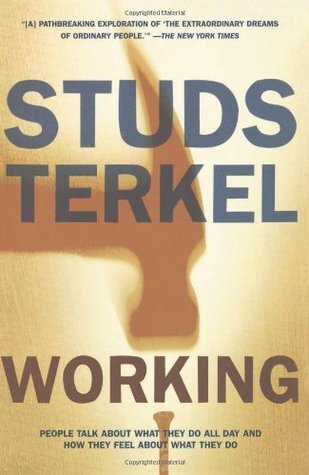
Working: People Talk About What They Do All Day and How They Feel About What They Do
by Studs Terkel
Studs Terkel records the voices of America. Men and women from every walk of life talk to him, telling him of their likes and dislikes, fears, problems, and happinesses on the job. Once again, Terkel has created a rich and unique document that is as simple as conversation, but as subtle and heartfelt as the meaning of our lives.... In the first trade paperback edition of his national bestseller, Pulitzer Prize-winning author Studs Terkel presents "the real American experience" (Chicago Daily News) -- "a magnificent book . . .. A work of art. To read it is to hear America talking." (Boston Globe)

Nosedive (Black Mirror)
The episode received mainly positive reviews and is middling in critics' lists of Black Mirror episodes, qualitatively. The pastel visual aesthetics were widely praised, along with Max Richter's soundtrack and Howard's performance. A criticism from several reviewers was the episode's predictability and ending, though the script and comedic undertones were praised by some. Many critics noted the similarity of the episode to real-world app Peeple and China's Social Credit System, along with fictional works about social media with themes of gender and obsession with image. The episode was nominated for several awards, including a Screen Actors Guild Award nomination for Howard and a Primetime Emmy Award nomination for McGarvey. A board game Nosedive, based on the episode, was released in 2018.

China’s Social Credit System
The Social Credit System (Chinese: 社会信用体系; pinyin: shèhuì xìnyòng tÇxì) is a national credit rating and blacklist being developed by the government of the People's Republic of China. The social credit initiative calls for the establishment of a record system so that businesses, individuals and government institutions can be tracked and evaluated for trustworthiness. There are multiple, different forms of the social credit system being experimented with, while the national regulatory method is based on blacklisting and whitelisting. The program is mainly focused on businesses and is very fragmented, contrary to the popular misconceptions that it is focused on individuals and is a centralized system.




